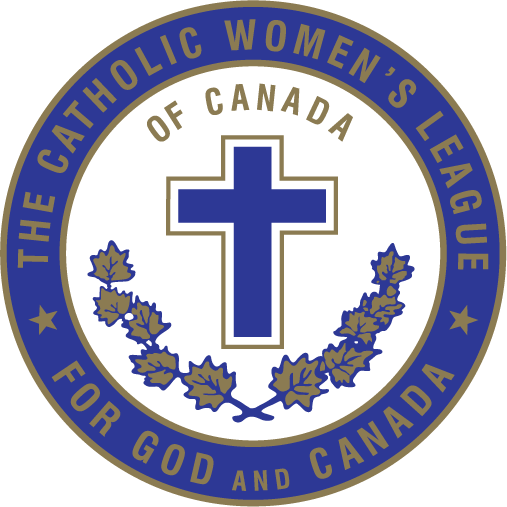Chantal Devine
Saskatchewan Provincial President
The mission of members echoed through the reports of the three diocesan presidents. In this, the fourth year of online reporting, the number reporting in the Diocese of Regina almost doubled over the previous year! Fifty out of a possible 69 parish councils reported. In the Diocese of Prince Albert, just over one-half of parish presidents reported—13 of 21. The Saskatoon Diocesan Council had a 71% response, with 30 of 40 parish presidents reporting.
In every parish council, the position of president was filled. More than one-half of presidents reported being a member for more than 25 years, and the same number had previously held the position. In Prince Albert and Regina diocesan councils, most fell into the 65-74 age group. In Saskatoon Diocesan Council, presidents were slightly younger. Forty per cent of presidents fell into the 65-74 years of age category, 37% were between 55-64 years of age, and 30% were between the ages of 34 and 44.
Nearly all parish presidents responded that members received a majority of information from The Canadian League. The magazine served as a positive tool in keeping members connected. A close second was national communiques, as well as diocesan newsletters and communiques. About one-half used the national and provincial websites to find information.
The national theme, Care for Our Common Home, was well received and discussed at parish council meetings. Some parish councils brought in speakers to expound on the topic. Other issues of great interest were excluding medical assistance in dying from palliative care and hospice facilities, and removing the Canada Summer Jobs Program attestation put forward by the federal government. In Saskatoon Diocesan Council, an Indigenous awareness evening was organized to help members learn more. The resolutions on the rights of the pre-born under the United Nations Convention on the Rights of the Child and establishing standards of testing and labelling for products deemed flushable were also discussed by about one-half of presidents who reported.
The role of the spiritual advisor was very important to parish councils. Seventy per cent of parish councils met with the spiritual advisor monthly. The majority of respondents felt the spiritual advisor was very supportive of the League, even though a few parish councils rarely met with him or her. This lack of contact could be due to the great distance priests needed to travel in rural areas, especially those who ministered to more than one parish. To help increase the attendance of spiritual advisors at meetings, parish councils were advised to meet with the spiritual advisor in September before scheduling the dates for monthly meetings so as to accommodate his schedule.
Various resources were used for reference, training and discussion. The majority used the Executive Handbook. The Constitution & Bylaws, the National Manual of Policy and Procedure and the parish council’s manual of policy and procedure were used by more than one-half of councils. About 25% made use of Robert’s Rules of Order and the Parliamentary Procedures booklet.
More than 90% of parish presidents signed cheques and banking documents on behalf of the council. More than one-half signed letters directed within the League, but very few signed letters to go outside of the League, nor did they sign many petitions.
Every parish president reported representing her council at church functions. This was followed closely by workshops, World Day of Prayer, regional and diocesan meetings, conventions and community events. It was unfortunate that only 25% took part in Remembrance Day ceremonies, a lost opportunity to increase the visibility of the League in the community.
Most parish councils did not subsidize their president to attend conferences, fundraising dinners or events. However, at least 60% subsidized the total cost of attending provincial and diocesan conventions. Forty per cent either did not subsidize, or paid for either one-half or 25% of their costs. About 20% completely subsidized the cost of attending workshops, while a few reported being compensated for one-half or one-quarter of the cost. Very few parish councils reported subsidizing attendance at the national convention, which was reflected in only ten per cent of parish presidents attending.
Less than one-half of parish councils had a parish policy manual. More than one-half of those that did not have a policy manual would like to have one and would like help in developing it. This may be an area where members of the diocesan or provincial councils could hold a workshop. About six per cent of parish councils reported making new policies this year.
The Executive Handbook was a valuable manual to all parish councils. It was used as a reference guide in reviewing the duties of each chairperson. This helped ensure the council fulfilled the Objects of the League as cited in the Constitution & Bylaws.
Just more than one-half of parish presidents provided an annual report to members. Most chose to give an oral report; very few submitted a written report. Some sent their report via e-mail or had it printed in the parish bulletin.
Many of the larger parish councils formed committees to undertake projects. Members of smaller parish councils worked together as they did not have the numbers to set up committees. The most active group was the funeral lunch committee, followed closely by the annual events committees such as teas, bazaars, and visitations. Some parish councils had a committee to provide scholarships and bursaries to deserving individuals.
All councils reported that providing an honour guard at funerals for deceased members was very important, and members felt privileged to be a part of it. Due to the provincial focus on Canadian Northern Missions in the previous two years, many parish councils chose to continue that support. Parish councils were also very involved with Development and Peace—Caritas Canada, “12 Hours of Prayer for Palliative Care,” pro-life organizations and Cuernavaca. One parish president reported introducing a spiritual book club in her parish. This was a very positive endeavour that drew members and non-members together in a time of learning and fellowship.
As mentioned previously, not many presidents wrote letters, as such, the League letterhead was seldom used. Also, with more members becoming computer literate, most notes and letters were in the form of an e-mail or text message.
As leaders of their parish councils, presidents reported speaking on all issues that affected their council and the League. They visited neighbouring councils and brought anniversary congratulations, welcomed members to conventions or brought greetings to regional workshops. Parish presidents spoke on the topics of social justice, euthanasia and pro-life. They promoted Teen-Aid Saskatchewan and prayers for priests.
The majority of parish presidents said their greatest assistance came from the council’s immediate past president, secretary and treasurer. About one-half stated former past presidents, the current executive as well as the diocesan president provided some assistance.
The greatest challenges for presidents were keeping members enthused about the League, recruiting new members and attendance at meetings. This was followed closely by members not wanting to take on a leadership position which resulted in not having a full slate of officers on the executive. More than one-half felt overwhelmed and undertrained. Other challenges mentioned were dealing with technology and finding the time to deal with paperwork and tedious policies and procedures.
Most parish presidents appreciated having a two-year national theme. The theme helped in bringing a new focus and made members feel more connected to their sisters across Canada.
Parish presidents were most proud in the way members came together to be of service to others and to grow in their faith. As one president put it, “We are all interested in growing our faith and working together for the betterment of our church, God and Canada.” Whether the council was large or small, this was the common theme expressed in the three diocesan councils.
The greatest challenge in completing the annual report survey was finding the time to do it! Older members were frustrated in not having the computer skills to do the report and having to rely on someone else to do it. One person commented, “If everything is online by 2022, it will eliminate the older members, and as it’s difficult to convince younger members to join, where will this leave the League?” Several said there was no challenge at all and were appreciative of those who had compiled the survey.
Along with the suggestions stated in this report, I saw a need for:
- workshops in completing and writing annual reports
- leadership workshops to motivate members to take on an executive position
- encouraging parish councils to subsidize the president so she can attend the provincial convention and all diocesan conventions
- holding strategic planning workshops in every region to instill excitement about the League and encourage recruitment of new members
- promoting letter writing and signing of petitions on important social justice issues
- encouraging members to submit articles and to visit the national and provincial websites
I felt blessed and honoured to be a part of this steadfast and faith filled group of women. Their commitment to “witness to the love of God through ministry and service,” was highly evident in the annual reports. The mission of the League will continue in Saskatchewan because of the faith and dedication of members. These qualities were very important in dealing with all the challenges members faced in their daily lives.


